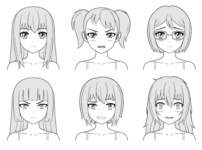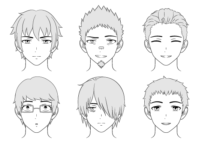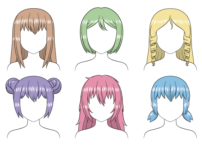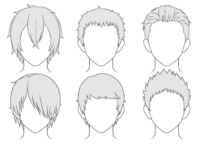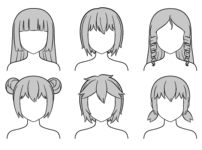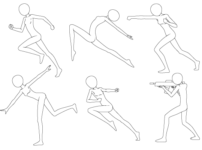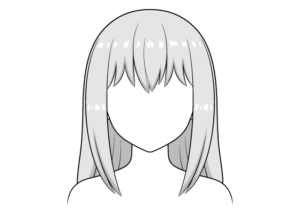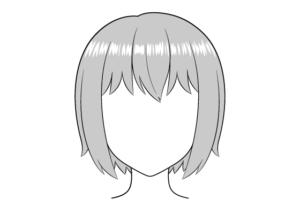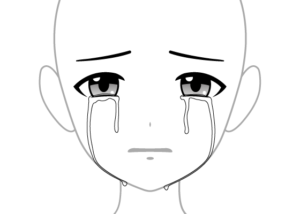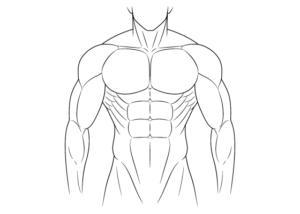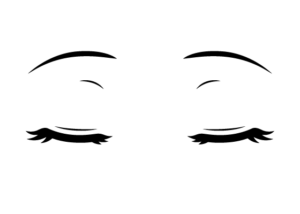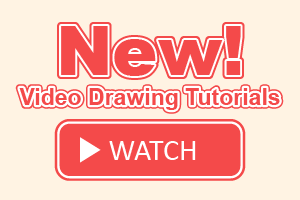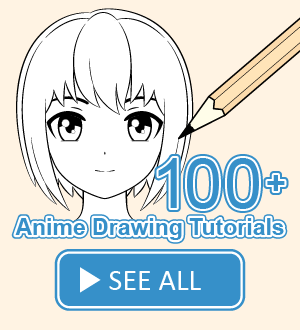How to Draw Anime Heads & Faces in Different Styles
This tutorial looks at how to draw different types/styles of anime and manga heads and faces going from the more common styles to the more stylized (also known as “Chibi”).
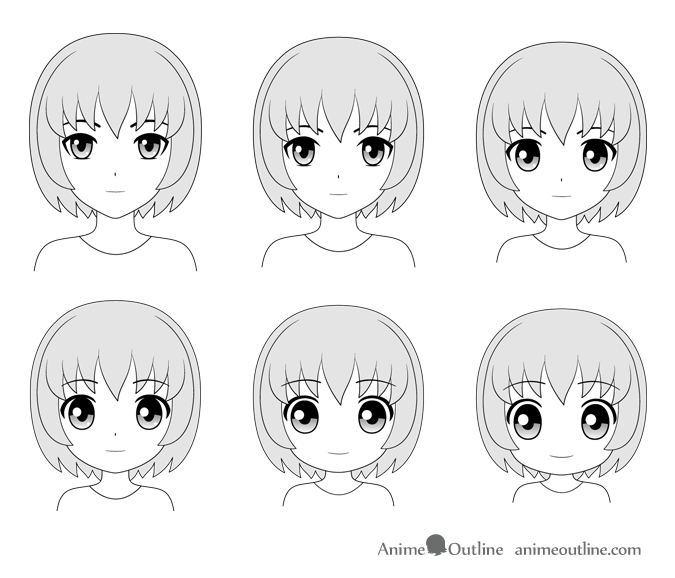
Below are some basic examples of the same character drawn in different styles along with an explanations for what makes them different from one another.
Standard Anime Heads & Faces
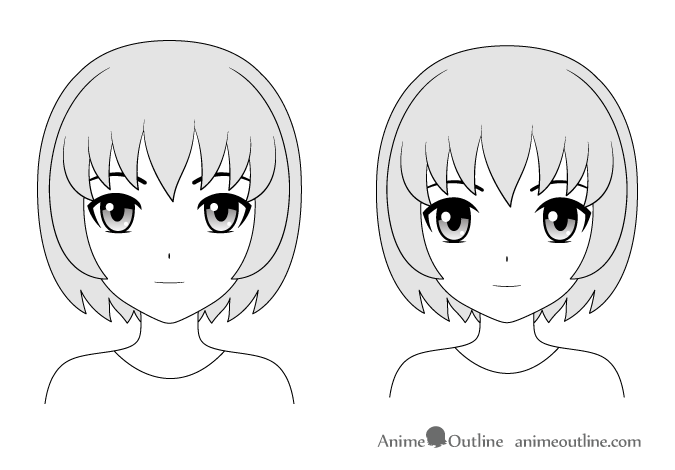
The above styles are similar to those commonly used in anime and manga. Usually these have body proportions that are are fairly close to those of real people.
Style is not the only thing that effects the shape and size of anime heads. The characters age is also important. Kids tend to have rounder faces and heads bigger in comparison to the rest of the body.
For more on drawing the faces of characters of different ages you can see:
- How to Draw a Cute Anime Girl Step by Step
- 8 Step Anime Woman’s Head & Face Drawing Tutorial
- 8 Step Anime Boy’s Head & Face Drawing Tutorial
Stylized Anime Heads & Faces
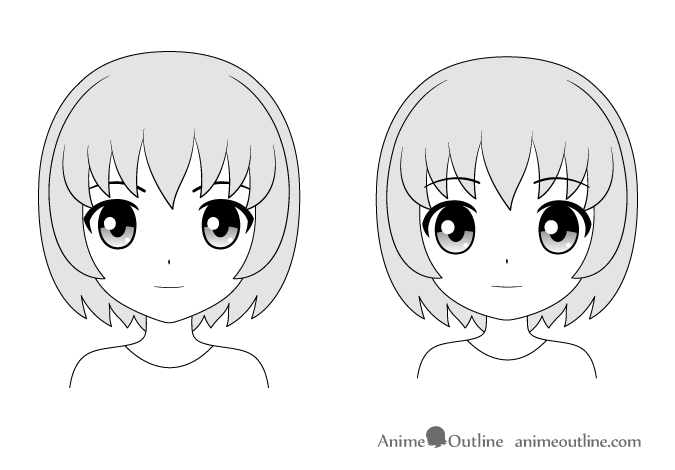
The more stylized example of anime characters tend to have bigger eyes and rounder chins. More stylized characters also tend to have heads that are bigger in relation to the rest of the body than in real people.
Chibi Anime Heads & Faces
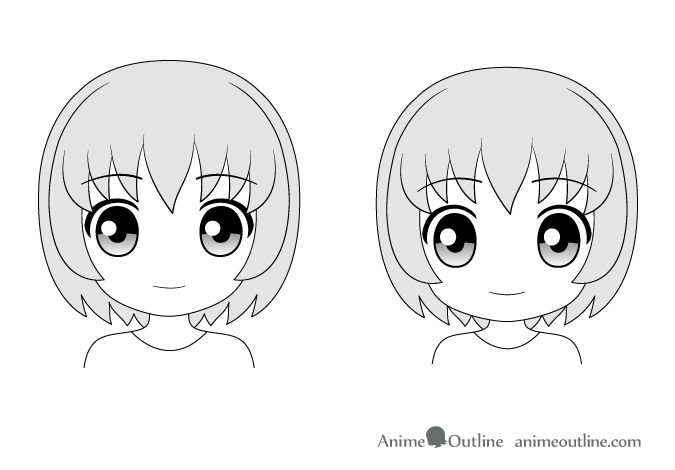
Chibi characters are very stylized. They tend to have very wide faces, rounded chins and huge eyes while the nose is often not drawn at all. These types of characters also usually have heads that are giant compared to the rest of the body.
Comparison of Different Styles of Anime Heads
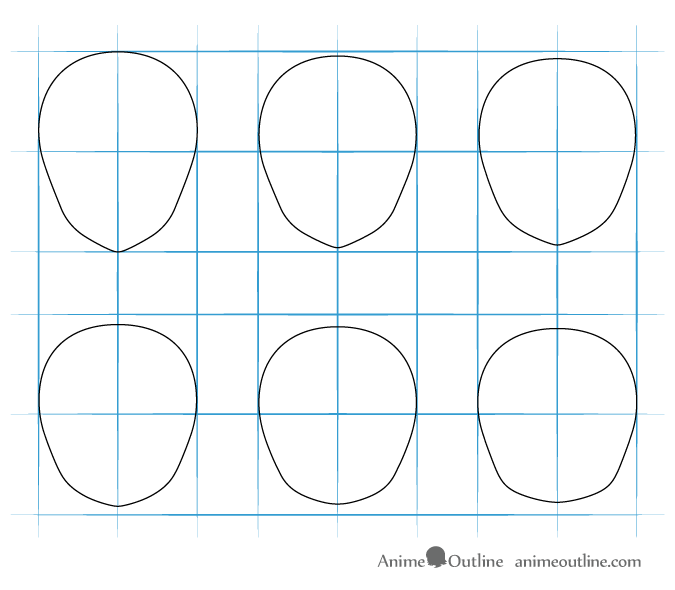
In the above example you can see the difference between the various styles of anime heads.
As already mentioned the more stylized faces are generally drawn wider and have more rounded chins.
Comparison of Different Styles of Anime Facial Features
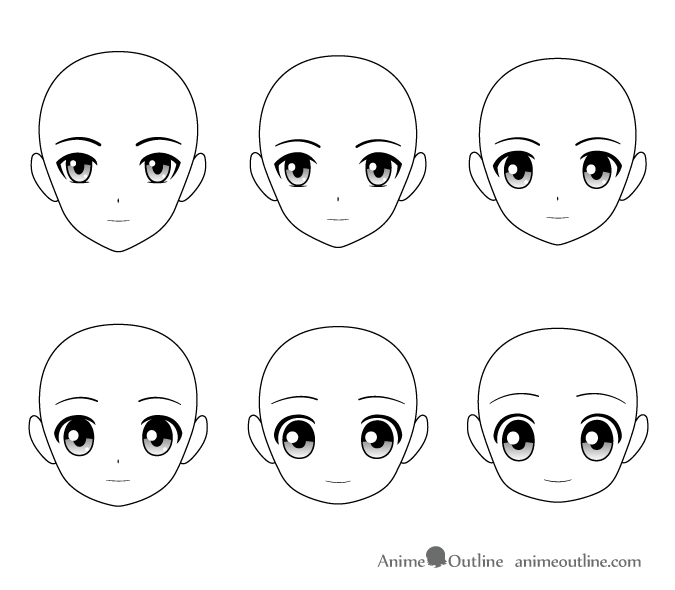
The above illustration shows how anime facial features tend to change based on style.
When drawing the facial features for the first three examples you can use the guidelines provided below.
For very stylized characters like the last three examples these guidelines may not always apply. When drawing “Chibi” characters you can draw the mouth and nose lower down than the below example. As these types of characters can be very stylized it’s hard to have a clear guideline for drawing them.
For some suggestions on chibi proportions you can see:
How to Draw Chibi Anime Character Step by Step
You can also check:
16 Examples of How to Draw Chibi Anime Facial Expressions
Placing Anime Facial Features for More Realistic Styles
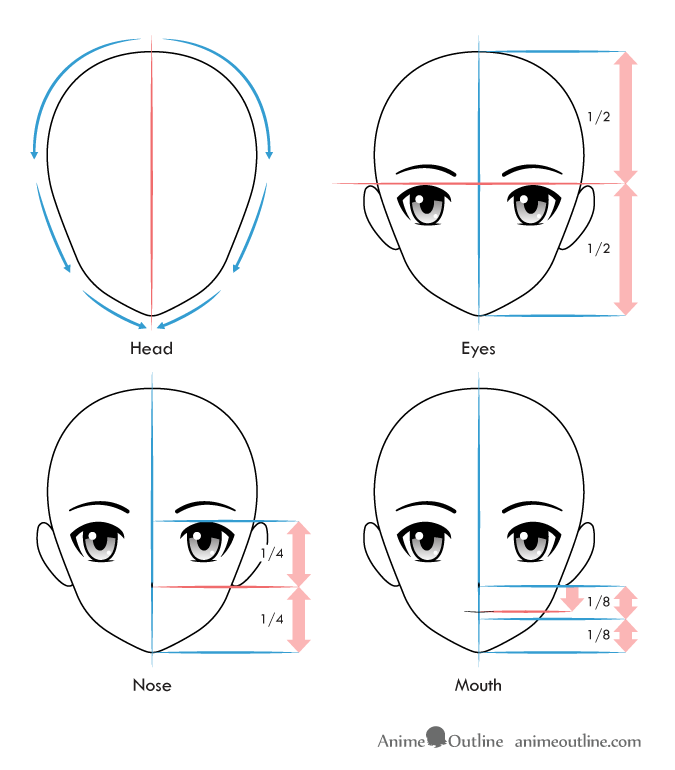
- Draw the head
- Draw a vertical line through the middle of the head to help you place the facial features more evenly on both sides of the head.
- Draw a horizontal line through the middle of the head and draw the eyes below that.
- Draw the nose halfway between the middle of the face and the chin.
- Draw the mouth slightly above the halfway point between the nose and the chin.
Drawing Anime Facial Features to Match the Style
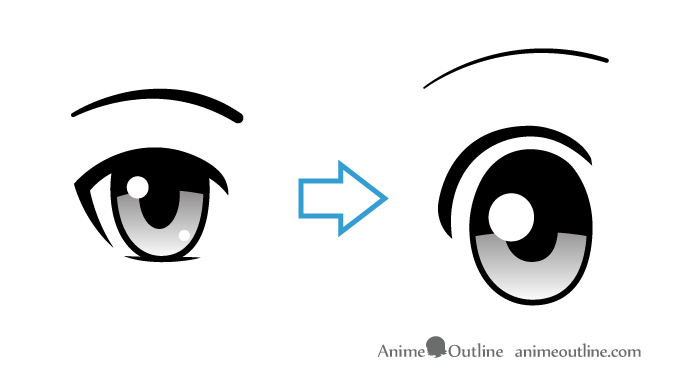
For more serious styles of anime eyes you can draw them closer in shape to real eyes (although still much larger).
For “Chibi” faces draw the eyes larger and “taller”. You can also avoid drawing the bottom eyelashes.
For more examples of drawing anime eyes see:
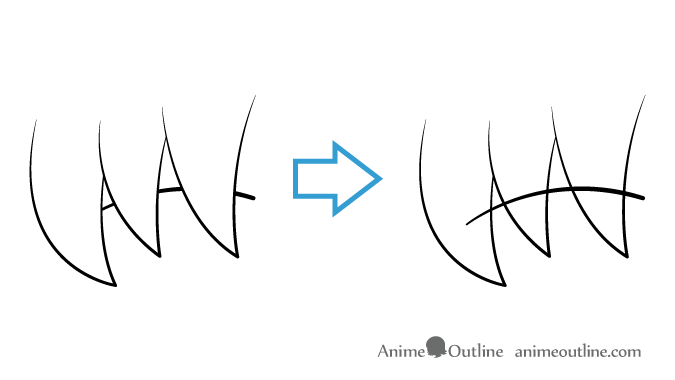
For less stylized anime and manga characters you can draw the eyebrows covered by the hair (if the hair goes down that far). For more stylized characters draw the eyelashes right over top the hair.
For more examples of drawing anime hair see:
How to Draw Anime & Manga Male & Female Hair
In the very stylized chibi faces you can avoid drawing the nose all together.
You can draw the mouth pretty much the same across most styles (single line). Though in some very realistic anime styles or if the character is wearing lipstick the mouths are drawn slightly different.
For more examples of drawing anime mouths see:
Conclusion
This tutorial covered some of the basics of drawing different styles of anime faces but obviously there are a lot more styles and variations out there. You can experiment combining different aspects from different styles and see what you can come up with.
For more similar tutorial see:

